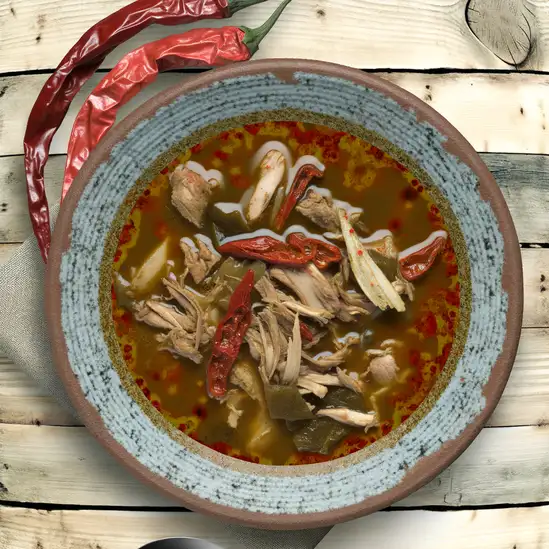



Imagine stepping into a place where the air hums with a gentle rhythm of drums and laughter,where the warmth of the people wraps around you like a familiar blanket. That’s Calabar for you—a city that feels alive with stories and smiles at every corner. As you wander through its streets,you’ll catch the scent of spicy street food mingling with the fresh ocean breeze,a tantalizing invitation to slow down and savor the moment. The colorful markets buzz with vendors calling out,their voices weaving into a lively soundtrack that’s both chaotic and comforting. Calabar’s charm lies in its blend of history and vibrant culture. You can explore colonial-era buildings that whisper tales of the past,then dive into the present with festivals that light up the city in bursts of color and music. The people here have a genuine warmth that makes you feel less like a visitor and more like a welcomed guest,eager to share their traditions and stories. Don’t miss trying the local delicacies—imagine biting into a perfectly spiced Afang soup or sipping on palm wine as the sun dips below the horizon. What really stays with you is the city’s pace—unhurried but never dull. Whether you’re strolling along the Calabar River,watching fishermen haul in their catch,or joining in the vibrant street celebrations,there’s a sense of connection to both the land and its people. Calabar invites you to experience Nigeria in a way that’s deeply personal,warm,and unforgettable.
The information on this page is currently being reviewed by Tripkliq and should be used as a guide only
Eng word: Hello
Eng pronunciation: Moh-kohm
Local language: Mọkọm
Eng word: Goodbye
Eng pronunciation: Soh-soh-nyoh
Local language: Sọsọñọ
Eng word: Thank you
Eng pronunciation: Soh-sohn-goh
Local language: Sosongo
Eng word: How much
Eng pronunciation: Ee-mah-nyah keh?
Local language: Imaña ke?
Eng word: Toilet
Eng pronunciation: Oo-fohk ahk-pah-nyah
Local language: Ufọk akpaña
Eng word: Help me
Eng pronunciation: Doh meen
Local language: Dọ miñ
Eng word: Yes
Eng pronunciation: Eh-yen
Local language: Eyen
Eng word: No
Eng pronunciation: Mm-behm
Local language: Mbem
Eng word: Excuse me
Eng pronunciation: Moh-kohm keh mee
Local language: Mọkọm ke mi
Calabar played a significant role in the transatlantic slave trade, serving as a major port where slaves were captured and shipped to the Americas.
Mary Slessor, a Scottish missionary, is known for her work in Calabar in the late 19th and early 20th centuries, advocating for the rights of indigenous peoples and spreading Christianity.
Calabar served as the capital of Nigeria during the colonial period, before the capital was moved to Lagos in 1906.
The National Museum in Calabar is home to a collection of artifacts that showcase the history and culture of the region, including pottery, sculptures, and traditional clothing.
Calabar served as a trading post where European merchants exchanged goods such as textiles, firearms, and liquor for palm oil, ivory, and slaves with the indigenous tribes of the region.
The Efik people are the original inhabitants of Calabar and have a rich cultural heritage that includes traditional dance, music, and cuisine.
Calabar was one of the first regions in Nigeria to come under British colonial rule, and the influence of the British can still be seen in the city's architecture and institutions.
During World War II, Calabar served as a key military base for the Allied forces, helping to secure West Africa and protect vital shipping routes.
The annual Calabar Carnival is a major event in the city, attracting visitors from around the world to enjoy music, dance, and vibrant costumes.
In Calabar, the most common Power Adaptor is Type D, Type G.



A spicy broth made with various meats or fish, flavored with local spices and herbs, often served as an appetizer.

A steamed bean pudding made from blended black-eyed peas, peppers, and spices, often served as a side dish.

A spicy cow foot dish cooked in a rich palm oil sauce, seasoned with potash and served with a side of chilled palm wine.

A rich vegetable soup made with fluted pumpkin leaves and waterleaf, often cooked with meat, fish, and spices.

A delicious soup made from a combination of Afang leaves and waterleaf, typically served with pounded yam or fufu.

A traditional soup made with bitterleaf, meat, and fish, known for its unique flavor and health benefits.

A nutritious soup made with pumpkin leaves, often combined with various proteins and served with a starchy side.

Ripe plantains sliced and fried until golden brown, often served as a side dish or snack.
Lagos pulses with an energy that grabs you the moment you step off the plane. It’s a city that never really sleeps,where the hum of traffic blends with the laughter of street vendors and the distant beat of Afrobeat music spilling from open windows. Walking through its bustling markets,you’re hit by a kaleidoscope of colors—vibrant fabrics fluttering in the breeze,fresh spices filling the air with a warm,earthy aroma,and the sizzle of street food grilling nearby. It’s a sensory overload in the best way,making you feel alive and part of something electric.
What makes Lagos truly special is its spirit—a mix of resilience,creativity,and warmth. The people here are endlessly welcoming,quick with a smile or a story,and proud of their city’s rich culture. Whether you’re exploring the art galleries in Lekki,catching a sunset by Tarkwa Bay,or dancing the night away in a lively bar in Victoria Island,you’ll sense a deep-rooted passion for life that’s contagious.
Lagos is a city of contrasts,where modern skyscrapers rise alongside traditional markets,and the Atlantic Ocean kisses sandy beaches just a short drive from the urban rush. It’s messy,vibrant,loud,and beautiful all at once. If you’re ready to dive into a place that challenges your senses and leaves you with unforgettable memories,Lagos is waiting with open arms.
Accra feels like a vibrant heartbeat pulsing through the heart of Ghana—warm,lively,and endlessly inviting. From the moment you step into its bustling streets,you’re wrapped in a tapestry of sounds:the rhythmic chatter of market vendors,the distant hum of highlife music,and the occasional honk of colorful tro-tros weaving through traffic. The air carries a mix of enticing aromas—spicy jollof rice sizzling nearby,fresh grilled fish by the shore,and the earthy scent of rain-soaked earth after a sudden tropical shower.
What makes Accra truly special is its blend of tradition and modernity. You’ll find yourself wandering through vibrant markets like Makola,where fabrics burst with color and artisans craft beautiful kente cloth,then slipping into cozy cafés where young creatives sip on rich Ghanaian coffee while discussing art and politics. The city’s coastline offers a refreshing escape,with Labadi Beach’s golden sands inviting you to relax or join locals dancing to Afrobeat rhythms under the sun.
Accra’s character is deeply rooted in its people—friendly,proud,and full of stories. Whether you’re sharing a laugh over kelewele (spicy fried plantains) or exploring the historic Jamestown district with its colonial architecture and lively street art,you’ll feel a genuine connection to the city’s soul. It’s a place that doesn’t just welcome you—it embraces you,leaving you with a sense of belonging long after you’ve left.
Malabo has this laid-back,island-town vibe that instantly makes you slow down and soak in the moment. Nestled on the northern tip of Bioko Island,the city feels like a vibrant crossroads where African traditions meet Spanish colonial charm. Walking through its streets,you’ll notice the colorful markets buzzing with life—vendors calling out,the scent of fresh tropical fruits mingling with the salty ocean breeze. Palm trees sway gently overhead,and the distant hum of fishing boats adds a rhythmic soundtrack to your stroll.
What really sticks with you about Malabo is its warmth—not just the weather,but the people. Locals greet you with genuine smiles and a relaxed friendliness that makes you feel welcome right away. The city’s architecture is a fascinating mix:Spanish colonial buildings with their ornate balconies stand alongside lively street art and modern touches,telling stories of a rich,layered history.
Food here is a celebration of the island’s bounty. Imagine savoring grilled fresh fish seasoned with local spices,paired with sweet plantains and a side of spicy pepper sauce that tingles your tongue. At night,the city softens into a cozy glow,and you might find yourself at a small café or bar,listening to Afrobeat rhythms or the gentle strum of a guitar,feeling like you’ve stumbled into a place where time moves just a little differently. Malabo isn’t just a destination—it’s an experience that lingers long after you leave.
If you find yourself in Douala,get ready to dive into a city that pulses with life and color from dawn till dusk. There’s an energy here that’s both chaotic and inviting—streets buzzing with motorbikes weaving through vibrant markets,the scent of grilled fish mingling with fresh spices wafting through the air. It’s a place where the Atlantic breeze cools the tropical heat,and the rhythm of Makossa music spills out from open windows,inviting you to move along with the beat.
Walking through Douala,you’ll notice the city’s unique blend of old and new. Colonial-era buildings stand shoulder to shoulder with sleek modern towers,while street vendors sell everything from ripe mangoes to handcrafted jewelry. The chatter of locals bargaining,the clatter of pots in roadside eateries,and the occasional call to prayer create a rich soundscape that feels alive and authentic.
What really makes Douala special is its warmth—the people. Cameroonians here are incredibly welcoming,eager to share stories over a plate of Ndolé or a cold palm wine. The city’s cultural tapestry is woven from dozens of ethnic groups,each adding their own flavor to the mix,whether through art,music,or cuisine. Visiting Douala isn’t just about seeing a place; it’s about feeling its heartbeat and letting it surprise you at every turn.
Banjul,the capital of The Gambia,is located on an island and offers serene beaches,wildlife experiences at the nearby Bijilo Forest Park,and a rich cultural heritage.
ExploreZanzibar City,located on the famous Zanzibar Island,is renowned for its historic Stone Town,turquoise waters,and white sandy beaches,making it a top destination for island lovers.
ExploreScammers install skimming devices on ATMs to steal card information from tourists withdrawing cash.
Individuals may approach tourists claiming to represent a charity or cause, but the money collected is pocketed by the scammer.
Tourists are offered currency exchange services at attractive rates, but they end up receiving counterfeit or less money than agreed upon.
Tourists are sold counterfeit tickets to local events or attractions, which are invalid upon arrival.
Tourists may be sold counterfeit or low-quality items at inflated prices, claiming they are authentic local crafts.
Scammers pose as tour guides and offer to show tourists around the city, only to overcharge them or abandon them after collecting payment.
Some taxi drivers may overcharge tourists by taking longer routes or claiming their meters are broken.
Crowded areas like markets or festivals are hotspots for pickpockets who target unsuspecting tourists.
Scammers befriend tourists online or in person, build trust, and then request money for fabricated emergencies or travel expenses.
Tourists are lured into street gambling games, which are rigged to ensure they lose money.
The possession, use, or trafficking of illegal drugs is strictly prohibited in Nigeria, including Calabar. Penalties for drug-related offenses are severe and can include long prison sentences or even the death penalty for trafficking. Tourists should avoid any involvement with illegal drugs and ensure that any prescription medications they carry are accompanied by proper documentation.
In Calabar, Nigeria, smoking in public places is generally discouraged, and there are regulations in place to restrict smoking in certain areas such as government buildings, hospitals, schools, and public transportation. Tourists should be mindful of 'No Smoking' signs and avoid smoking in enclosed public spaces to avoid fines or penalties.
Vaping is not explicitly regulated in Nigeria at the federal level, but it is treated similarly to smoking in many areas. In Calabar, tourists should exercise caution and avoid vaping in public spaces or areas where smoking is prohibited. It is advisable to check with local authorities or establishments for specific rules.
What are other people saying about Calabar?
Recent Social posts about Calabar
There is nothing to show you for now.